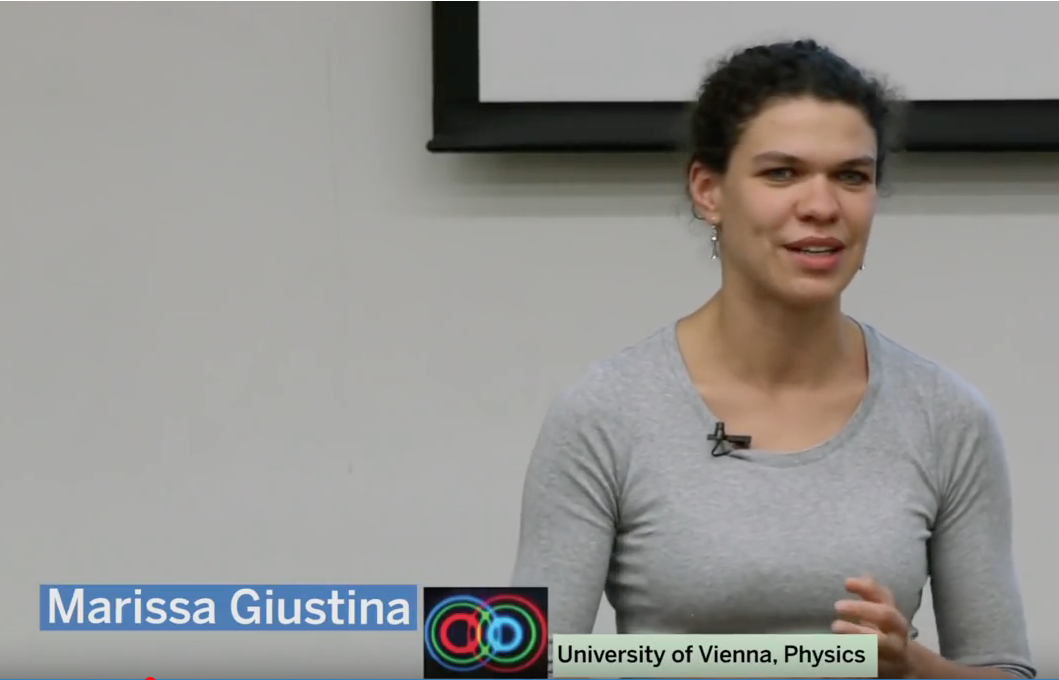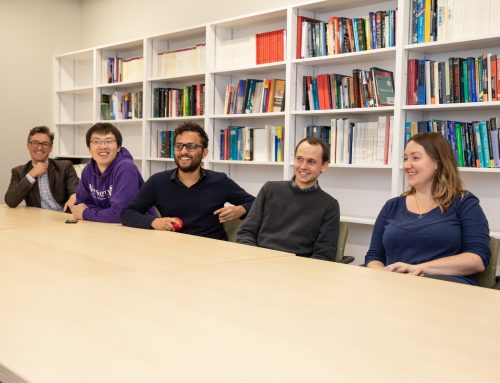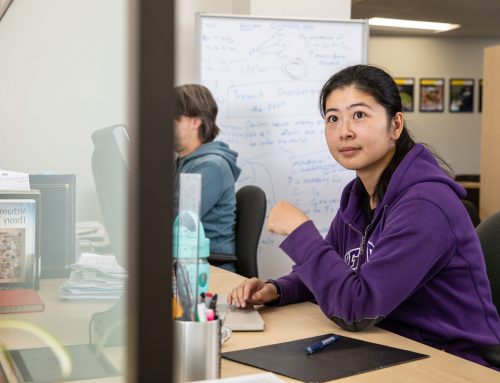The Rotman Institute YouTube channel continues to grow, and is currently up to over 3,300 subscribers. With videos from our annual speakers series, Institute hosted academic conferences, and unique events like our Rotman Dialogues, our channel includes content on a range of philosophical topics and areas. Listed below are our top 10 most popular videos from 2018. Check out the videos if you missed these events, and find other great videos on our YouTube channel.
Happy New Year, everyone!
Local realism is the worldview in which physical properties of objects exist independently of measurement and where physical influences cannot travel faster than the speed of light. Bell’s theorem states that this worldview is incompatible with the predictions of quantum mechanics, as is expressed in Bell’s inequalities. Previous experiments convincingly supported the quantum predictions. Yet, every experiment requires assumptions that provide loopholes for a local realist explanation. In this paper, I will discuss the recent results from my laboratory, in which we designed an experiment that closes the most significant of these loopholes simultaneously. Using a well-optimized source of entangled photons, rapid setting generation, and highly efficient superconducting detectors, we observe a violation of a Bell inequality with high statistical significance. The purely statistical probability of our results to occur under local realism is exceedingly unlikely, corresponding to an 11.5 standard deviation effect.
Marissa Giustina, University of Vienna, Physics
Information-Theoretic Interpretations of Quantum Mechanics: 2016 Annual Philosophy of Physics Conference
June 11-12, 2016
Lee Smolin, Perimeter Institute for Theoretical Physics
Cosmology and the Future of Spacetime conference
June 14, 2017
Peter Singer’s Animal Liberation, often credited with starting the modern animal rights movement, was first published in September 1975. In this lecture, the author assesses how well the argument has stood up over that period, and what progress has been made towards the changes in our treatment of animals that the book advocates.
Peter Singer, Princeton University and University of Melbourne
September 18, 2015
Tim Maudlin, New York University
2014 Metaphysics Within and Without Physics Conference
June 7-8, 2014
Caring deeply about our children is part of what makes us human. Yet the thing we call “parenting” is a surprisingly new invention. In the past thirty years, the concept of parenting and the multibillion dollar industry surrounding it have transformed child care into obsessive, controlling, and goal-oriented labor intended to create a particular kind of child and therefore a particular kind of adult. I’ll argue that the familiar twenty-first-century picture of parents and children is profoundly wrong–it’s not just based on bad science, it’s bad for kids and parents, too. Drawing on the study of human evolution and my own scientific research into how children learn, I’ll show that although caring for children is profoundly important, it is not a matter of shaping them to turn out a particular way. Children are designed to be messy and unpredictable, playful and imaginative, and to be very different both from their parents and from each other. The variability and flexibility of childhood lets them innovate, create, and survive in an unpredictable world. “Parenting” won’t make children learn—but caring parents let children learn by creating a secure, loving environment.
Alison Gopnik, University of California Berkeley
September 28, 2017
Adan Cabello’s recent classification of quantum interpretations introduces the term “participatory realism” for interpretations in which measurement outcome probabilities are not determined by real properties. Examples include QBism and the Copenhagen interpretation. In this talk I compare different forms of participatory realism. I discuss what the challenges are for participatory realism, and how these challenges are met by QBism.
Rüdiger Schack, Royal Holloway University of London
Information-Theoretic Interpretations of Quantum Mechanics: 2016 Annual Philosophy of Physics Conference
June 11-12, 2016
The problem of fatalism was around long before relativity, but gained affirmation in many peoples minds from Relativity. Relativistic theories confront us with a vision of the universe from a temporally transcendent standpoint, i.e., one that treats time as an internal parameter in the universe composed of events. The problem of determinism also had some early precedents, but received a precise expression with the provision of the Newtonian deterministic equations of motion. On the face of it, these seem like different problems: one has to do with time, the other with laws. And it seems that one can be a fatalist without being a determinist, and one can worry about determinism without being moved by the fatalist arguments. I will point out a connection between these two problems by linking determinism to totality and totality to transcendence. And I will look at what that connection can teach us about the nature of both problems.
Jenann Ismael, University of Arizona
March 2, 2018
Information concerning the internal state of the body is arguably the basis for emotional feelings and may serve as the primary reference for the development of self-representation underpinning many aspects of consciousness. The combination of functional and structural neuroimaging, autonomic psychophysiology and patient studies has provided valuable insight into the brain mechanisms though which thoughts, feelings and behaviours are integrated with the signalling and control of bodily state. Recently, we have revisited the issue of how information concerning the timing and strength of individual heartbeats influences the perception and encoding of environmental and self-related stimuli. Our observations indicate that this channel of afferent viscerosensory signalling differentially impacts upon the processing of threat, enhancing the detection and salience of threat signals. This contrasts with the observed inhibition of other types of sensory processing including responses to pain stimuli. The study of interoceptive representations within the brain and their influence on perception cognition and emotion is revealing mechanisms relevant to consciousness science and disorders of selfhood that ultimately may inform new clinical therapeutic targets.
Hugo Critchley, Brighton and Sussex Medical School and Sackler Centre for Consciousness Science, University of Sussex
October 15, 2015
At the Annual Philosophy of Physics Conference, Gravity and Geometry: Centenary Perspectives on General Relativity, John Norton presented this lecture, entitled, “Einstein’s Discovery of the General Theory of Relativity”. Participants presented physical, philosophical, and historical reflections on Einstein’s theory of gravity and space-time geometry, its development over the past century, and its future prospects.
John Norton, University of Pittsburgh
June 06, 2015
Loop Quantum Gravity describes the dynamics of quanta of spacetime. What is the relation between those quanta and the classical spacetime? Moving from this question, I will introduce the covariant dynamics of the theory and discuss how this does not allow curvature singularities to form.
Francesca Vidotto, Institute for Mathematics, Astrophysics and Particle Physics, Radboud University Nijmegen – The Netherlands
Cosmology and the Future of Spacetime conference
June 12, 2017






